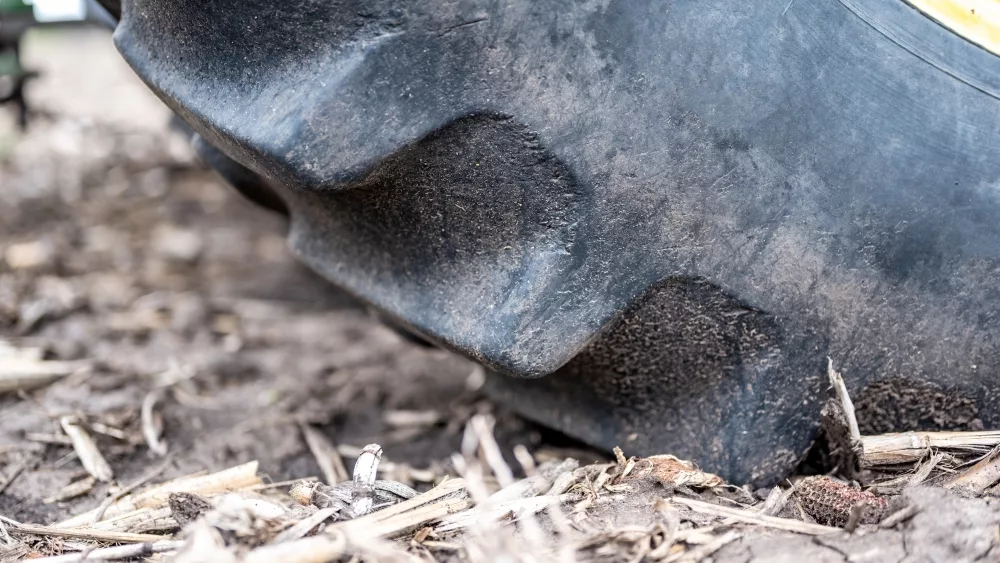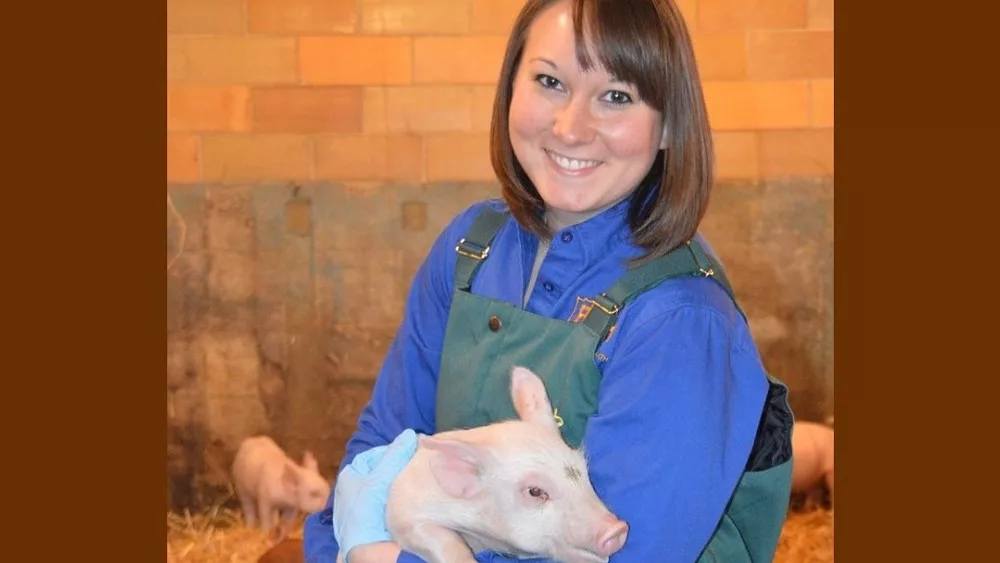 The warm, dry weather conditions across Indiana have been helpful to farmers this harvest season. Unfortunately, those conditions also increase the risks for combine fires.
The warm, dry weather conditions across Indiana have been helpful to farmers this harvest season. Unfortunately, those conditions also increase the risks for combine fires.
“Perfect conditions don’t always mean a perfect outcome so take your time and be safe,” says Josie Rudolphi, an assistant professor and agricultural safety specialist at the University of Illinois. She says the majority of combine fires happen because the machine is not properly cleaned.
“The major causes of combine fires, it typically would be like ignition of trash or debris, organic matter that’s moving through the combine, it gets hot, gets clogged up, and it may then result in a combine fire,” says Rudolphi.
She says it’s important to address routine maintenance, even when things are going well.
“We want to make sure that we’re performing kind of routine maintenance on the combine, and it’s a little bit challenging, especially when we’ve been moving good and we’re getting stuff done,” says Rudolphi. “Routine maintenance can sometimes kind of fall to the wayside. It’s been what we consider ideal harvest conditions in most parts of the Midwest. Those rain days are typically the days we perform a lot of routine maintenance and without those rain days we just go, go, go, we don’t always check our machines like we should. We think everything is going really, really, well, and we just don’t want to jinx it.”
Rudolphi says it is best to take a few minutes at the start of each day to clear debris from the machine – and tackle a few other preventative maintenance checks as well.

“Otherwise the end of the day, it’s a little more challenging, you don’t want to obviously be too engaged with the machine that could be hot, which is another kind of reminder of not parking a hot machine in a building because it could result in not only combine fire but a structure fire. But, definitely starting the day with a routine check, removing any debris, checking on your wires, your hoses, to make sure that there’s no frayed wires, electrical wires especially, and no leaky hydraulic hoses,” according to Rudolphi.
She also suggests having a leaf blower or air compressor ready in the field to use to help clean out the combine just in case.
“It’s very easy and that’s a good recommendation to have an air compressor on the back of a truck,” says Rudolphi. “Have a leaf blower, have the tools that you need to make sure that you can get all the debris cleaned out. Having those things available is really key to some of this routine maintenance because if the tool is not there, it’s a lot easier to sort of skip the steps. And then, thinking about prevention, we also want to make sure that we are prepared for a fire, we have fire extinguishers not only on the combine but also on another vehicle in the field.”
Also, while working in the field, if you sense there’s an issue with the machine, shut it off right away.
“If you are going to perform any maintenance on a machine, the machine needs to be turned off. And we would encourage even beyond that implementing some sort of lockout-tagout, and what that means is that you’ve turned the machine off and locked it out in such a way that nobody else can turn it on. In a combine, it’s very easy, pull the keys so that you know the machine is off, and you also know that nobody else is going to turn the machine on.”
Click HERE for MORE harvest equipment safety tips from Purdue Extension.
Click BELOW for C.J. Miller’s news report on how to prevent combine fires during harvest.

Source: NAFB News Service.




